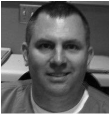
For example, we professionals miss the diagnosis. We get it wrong. Take the symptom "mood swing." This symptom might be seen in several different diagnoses, such as bipolar disorder, PTSD, substance abuse, domestic violence, or other brain injury. We can misattribute the root source of a symptom and therefore treatment doesn't match or work.
Sometimes we prescribers haven't heard the full story. Say we are trying to help with a depression but haven't been told a person is using drugs or alcohol. Trust me, we're not upset to hear what's actually happening, we want and need to. That's how we can best respond.
Let's look for additional factors. Are there unaddressed cultural, work, or religious issues? Are there co-occurring medical concerns? Is a person facing new or worsened discrimination, legal or financial issues? Addressing the whole picture often improves overall treatment outcome.
The expected course over time of some illness is one of gradual worsening. That's often true for psychosis without treatment. As such, some lack of treatment response means we have to increase the treatment intensity; more frequent therapy times, more aggressive medication(s), etc. and paying attention to nutrition, relaxation, and spiritual issues.
Perhaps, most important, when things are not going as expected it is the perfect time move up therapy and doctor visit times. As soon as there are any treatment problems it is always best to address them as soon as possible with your care provider.











 RSS Feed
RSS Feed